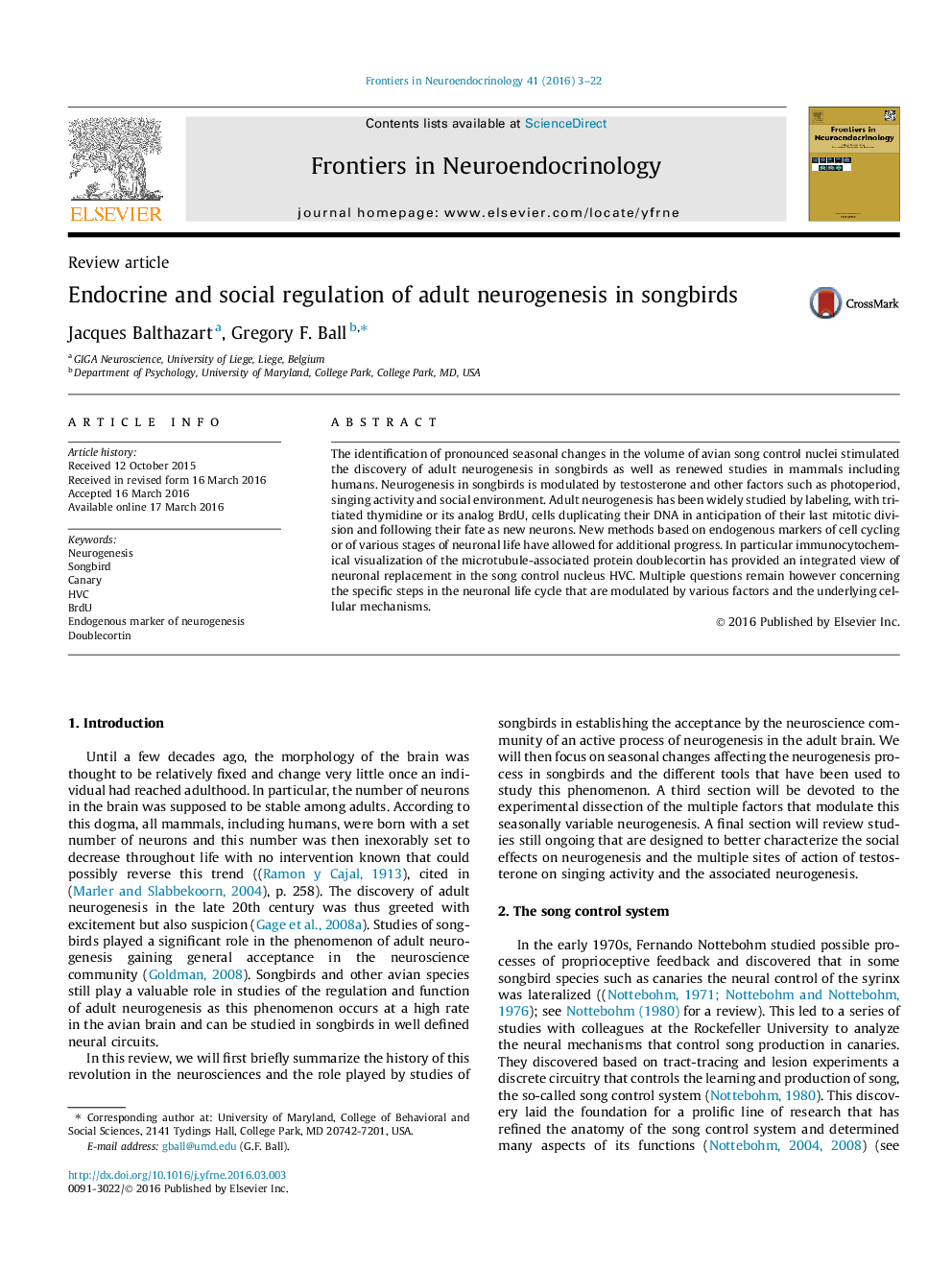| Article ID | Journal | Published Year | Pages | File Type |
|---|---|---|---|---|
| 2799279 | Frontiers in Neuroendocrinology | 2016 | 20 Pages |
•Neurogenesis in HVC is controlled by various factors in addition to testosterone.•Endogenous markers of cell cycle provide additional information about neurogenesis.•Doublecortin provides an integrated view of neuronal replacement in HVC.•Specific steps in the neuronal life cycle that are regulated remain partly unknown.
The identification of pronounced seasonal changes in the volume of avian song control nuclei stimulated the discovery of adult neurogenesis in songbirds as well as renewed studies in mammals including humans. Neurogenesis in songbirds is modulated by testosterone and other factors such as photoperiod, singing activity and social environment. Adult neurogenesis has been widely studied by labeling, with tritiated thymidine or its analog BrdU, cells duplicating their DNA in anticipation of their last mitotic division and following their fate as new neurons. New methods based on endogenous markers of cell cycling or of various stages of neuronal life have allowed for additional progress. In particular immunocytochemical visualization of the microtubule-associated protein doublecortin has provided an integrated view of neuronal replacement in the song control nucleus HVC. Multiple questions remain however concerning the specific steps in the neuronal life cycle that are modulated by various factors and the underlying cellular mechanisms.
Graphical abstractFigure optionsDownload full-size imageDownload as PowerPoint slide
